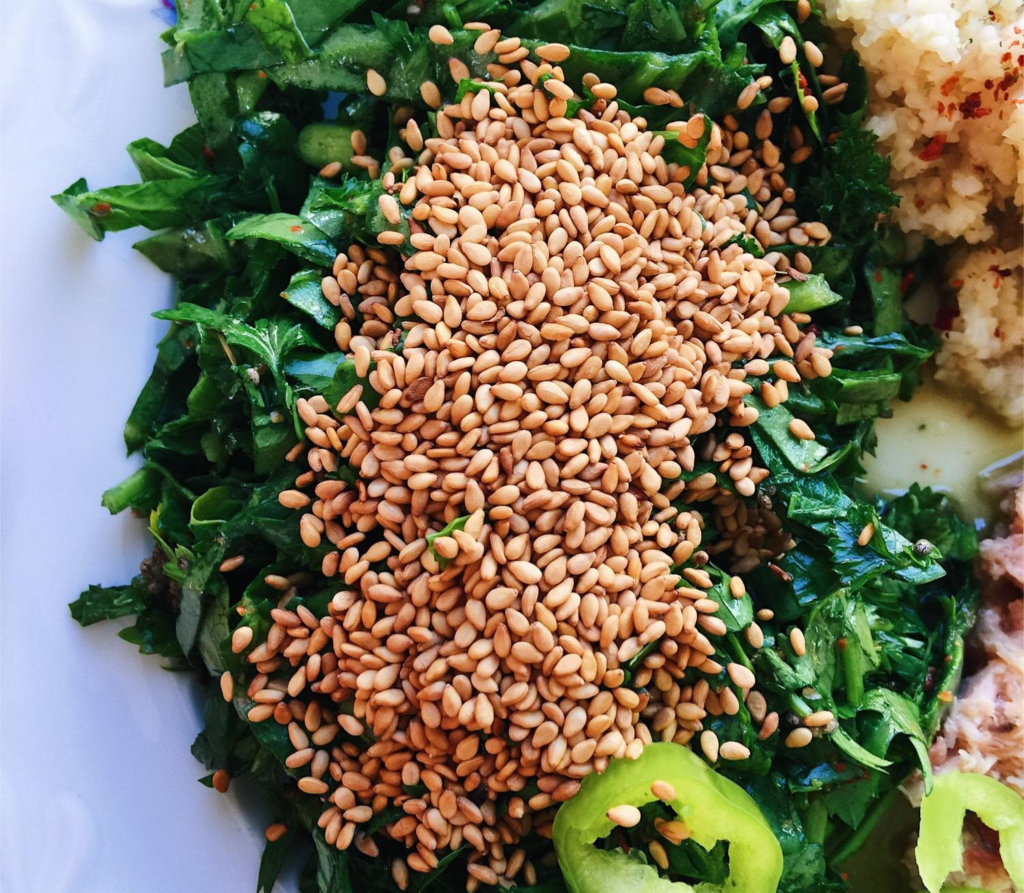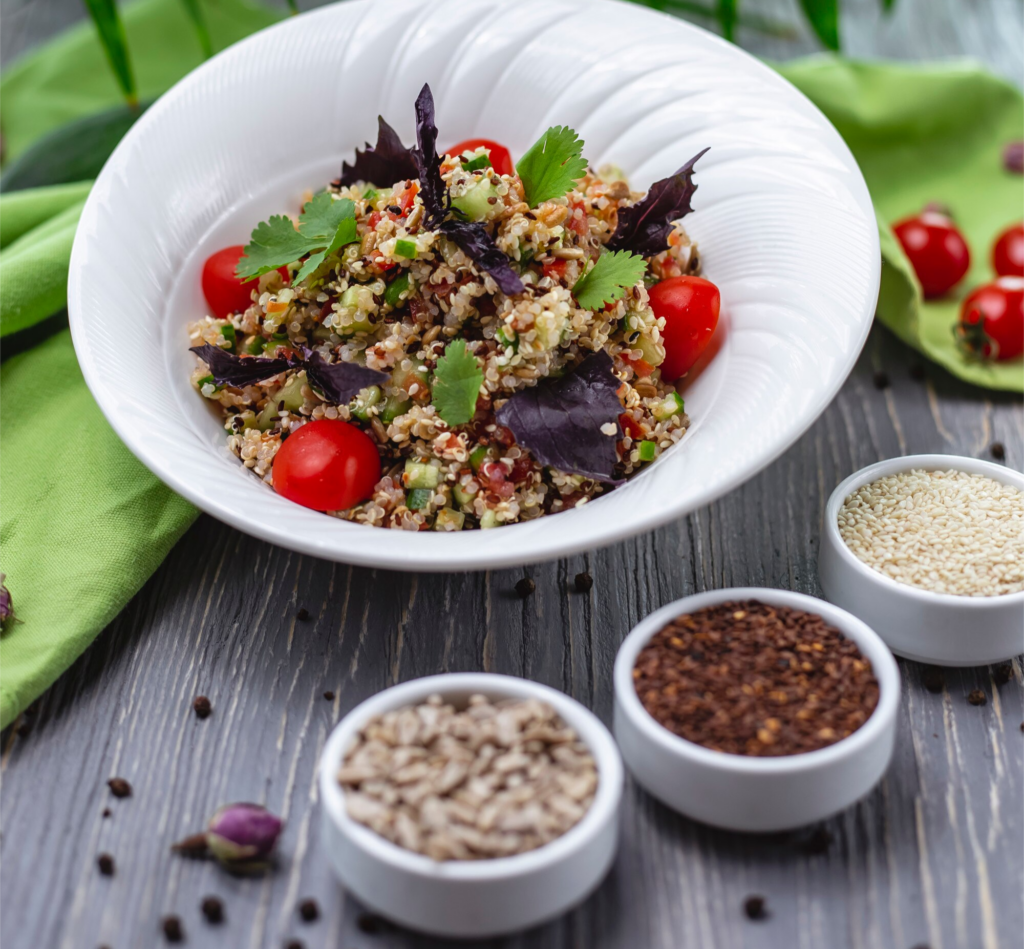Bariatric surgery, particularly weight loss surgery, has helped countless individuals regain control over their health and achieve long-term weight loss.

However, the journey after bariatric surgery requires a lot of attention to detail, especially when it comes to diet. One of the most important dietary changes is ensuring that the foods you consume support your weight loss goals and are gentle on your digestive system.
A diet rich in nutrient-dense foods can help you maintain a healthy lifestyle post-surgery, and bariatric seed recipes are a great way to incorporate healthy fats, protein, and fiber into your meals.
In this post, we will explore how bariatric seed recipes can be a key part of a weight loss journey, providing you with tips, benefits, and a few delicious seed-based recipes to try.
The Importance of a Bariatric-Friendly Diet
After undergoing bariatric surgery, your body goes through a period of healing and adjustment. This means that your digestive system, which has been altered to limit food intake, needs extra care. Your meals should focus on small, frequent portions of high-quality food that provide essential nutrients.
The primary goals of a bariatric diet are:
-
Promoting Weight Loss: By focusing on portion control and eating nutrient-dense foods, you can maximize your weight loss.
-
Preventing Malnutrition: Bariatric patients are at risk of malnutrition due to the reduced absorption of nutrients. A balanced diet can help combat this.
-
Maintaining Satiety: Consuming foods that are high in fiber and protein can help you feel fuller for longer, which reduces hunger and promotes weight loss.
Why Seeds Are Essential for Bariatric Weight Loss
Seeds, despite their small size, are nutritional powerhouses. They provide an excellent source of healthy fats, protein, and fiber, all of which play a crucial role in weight loss and digestive health.
For bariatric patients, seeds are an easy and convenient way to add essential nutrients to meals without overwhelming the digestive system.
Here are some reasons why seeds are an ideal addition to a bariatric-friendly diet:
-
High in Protein: Seeds like chia, flax, and hemp are packed with plant-based protein. Protein is essential for muscle repair and growth, and it also keeps you feeling satisfied, which is critical for weight management.
-
Rich in Fiber: Fiber is vital for digestive health, and it can help prevent constipation—a common concern after bariatric surgery. Fiber also supports weight loss by promoting fullness and reducing hunger.
-
Healthy Fats: Healthy fats found in seeds, such as omega-3 fatty acids, help promote heart health, reduce inflammation, and support overall well-being.
-
Low in Carbs: Many seeds are naturally low in carbohydrates, making them an excellent option for bariatric patients who need to limit their carb intake.
-
Rich in Micronutrients: Seeds are full of essential vitamins and minerals like magnesium, zinc, iron, and antioxidants, which are important for recovery and maintaining overall health after surgery.
Essential Seeds for Bariatric Weight Loss
Not all seeds are created equal, and it’s important to select those that are best suited for your weight loss and health goals. Here are some of the most beneficial seeds to include in your bariatric diet:
Chia Seeds
Chia seeds are small but mighty. They are packed with fiber, protein, and omega-3 fatty acids, which help reduce inflammation and support heart health.
Chia seeds also contain a significant amount of calcium, which is important for bone health, especially after bariatric surgery.
Nutritional Breakdown (per 1-ounce serving):
-
Calories: 138
-
Protein: 4.7g
-
Fiber: 10.6g
-
Omega-3 Fatty Acids: 5g
Flaxseeds
Flaxseeds are a fantastic source of omega-3 fatty acids, fiber, and lignans (antioxidants that may help reduce the risk of chronic diseases).
They are known to help with digestion and may aid in controlling blood sugar levels, which is especially important for bariatric patients.
Nutritional Breakdown (per 1-ounce serving):
-
Calories: 150
-
Protein: 5g
-
Fiber: 8g
-
Omega-3 Fatty Acids: 6.3g
Pumpkin Seeds (Pepitas)
Pumpkin seeds are rich in protein, fiber, and minerals like zinc and magnesium. These seeds are also high in antioxidants, which help protect the body from oxidative stress and inflammation.
They are also great for supporting immune function, which is crucial during the recovery phase.
Nutritional Breakdown (per 1-ounce serving):
-
Calories: 151
-
Protein: 7g
-
Fiber: 1g
-
Magnesium: 168mg
Sunflower Seeds
Sunflower seeds are rich in healthy fats, particularly polyunsaturated fats. They are also a great source of vitamin E, which acts as an antioxidant to protect your cells.
The combination of protein and fiber in sunflower seeds makes them ideal for weight loss as they can help curb hunger and promote satiety.
Nutritional Breakdown (per 1-ounce serving):
-
Calories: 164
-
Protein: 5.5g
-
Fiber: 2.4g
-
Vitamin E: 10.5mg
Hemp Seeds
Hemp seeds are one of the most balanced sources of protein, containing all nine essential amino acids. These seeds are also rich in omega-3 and omega-6 fatty acids, which are beneficial for heart and brain health.
Their high protein content helps support muscle maintenance and repair, which is important for bariatric patients who are losing weight.
Nutritional Breakdown (per 1-ounce serving):
-
Calories: 170
-
Protein: 10g
-
Fiber: 1g
-
Omega-3 Fatty Acids: 2.6g
Bariatric Seed Recipes for Weight Loss
Now that you know the nutritional benefits of seeds, let’s explore some delicious and bariatric-friendly seed recipes to help with weight loss. These recipes are nutrient-dense, easy to digest, and perfect for any post-bariatric diet.

Chia Seed Pudding
Chia pudding is a popular and easy-to-make snack that is perfect for bariatric patients. It’s packed with fiber, healthy fats, and protein. Best of all, it can be customized with your favorite fruits or flavors.
Ingredients:
-
2 tbsp chia seeds
-
1 cup unsweetened almond milk (or any plant-based milk)
-
1 tsp vanilla extract
-
1 tsp sweetener of choice (e.g., stevia or honey)
-
Fresh berries (optional)
Instructions:
-
In a bowl, combine the chia seeds, almond milk, vanilla extract, and sweetener.
-
Stir well to ensure the chia seeds are evenly distributed.
-
Cover the bowl and refrigerate for at least 2 hours, or overnight.
-
Once the pudding has thickened, serve with fresh berries or toppings of your choice.
Flaxseed and Pumpkin Seed Smoothie
Smoothies are a great way to pack in nutrition, and this flaxseed and pumpkin seed smoothie is perfect for bariatric patients. It’s high in protein and fiber, and the healthy fats from the seeds will help keep you full.
Ingredients:
-
1 tbsp flaxseeds
-
1 tbsp pumpkin seeds
-
1/2 cup spinach
-
1/2 banana
-
1 cup unsweetened almond milk
-
1 tbsp peanut butter (optional)
-
Ice cubes
Instructions:
-
Add all ingredients to a blender.
-
Blend until smooth and creamy.
-
Pour into a glass and enjoy!
Hemp Seed Energy Bites
These hemp seed energy bites are a great on-the-go snack that provides a combination of healthy fats, protein, and fiber. They are perfect for bariatric patients who need a quick and easy snack to curb hunger.
Ingredients:
-
1/4 cup hemp seeds
-
1/4 cup rolled oats
-
1 tbsp almond butter
-
1 tbsp honey or maple syrup
-
1 tsp vanilla extract
Instructions:
-
In a mixing bowl, combine the hemp seeds, oats, almond butter, honey, and vanilla extract.
-
Stir until all ingredients are well combined.
-
Roll the mixture into small balls (about 1 inch in diameter).
-
Place the energy bites on a tray and refrigerate for at least 30 minutes before enjoying.
Sunflower Seed and Coconut Bars
These homemade bars are a great way to incorporate sunflower seeds into your bariatric diet. They’re packed with healthy fats and protein, making them an ideal snack to help curb hunger.
Ingredients:
-
1/2 cup sunflower seeds
-
1/4 cup shredded unsweetened coconut
-
1/4 cup almond butter
-
1 tbsp honey
-
1/2 tsp vanilla extract
Instructions:
-
In a mixing bowl, combine the sunflower seeds, shredded coconut, almond butter, honey, and vanilla extract.
-
Stir until well combined.
-
Press the mixture into a lined baking dish and refrigerate for at least 2 hours.
-
Once chilled, cut into bars and store in an airtight container.
Pumpkin Seed Crusted Chicken Tenders
This savory recipe uses pumpkin seeds as a healthy and crunchy coating for chicken tenders. It’s a great alternative to traditional breaded chicken and is packed with protein and healthy fats.
Ingredients:
-
1 lb chicken tenders
-
1/2 cup pumpkin seeds
-
1/2 cup almond meal
-
1 tsp garlic powder
-
1 tsp onion powder
-
Salt and pepper to taste
-
1 egg (beaten)
Instructions:
-
Preheat your oven to 375°F (190°C).
-
In a food processor, pulse the pumpkin seeds, almond meal, garlic powder, onion powder, salt, and pepper until finely ground.
-
Dip each chicken tender into the beaten egg, then coat it in the pumpkin seed mixture.
-
Place the chicken tenders on a baking sheet lined with parchment paper.
-
Bake for 25-30 minutes, or until the chicken is fully cooked and golden brown.
Conclusion
Incorporating seeds into your bariatric diet is a simple and effective way to boost your nutrient intake while supporting your weight loss journey.
Seeds like chia, flax, hemp, pumpkin, and sunflower are rich in protein, fiber, and healthy fats, all of which help maintain satiety and provide essential nutrients.
Whether you’re adding them to smoothies, energy bites, or savory dishes, there are endless ways to include seeds in your meals.
Always remember to consult your healthcare provider or dietitian before making any significant dietary changes after bariatric surgery. With careful planning and mindful eating, bariatric seed recipes can be a delicious and nutritious addition to your weight loss routine.